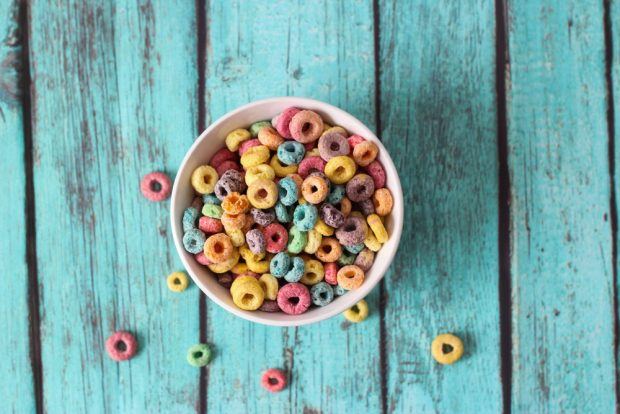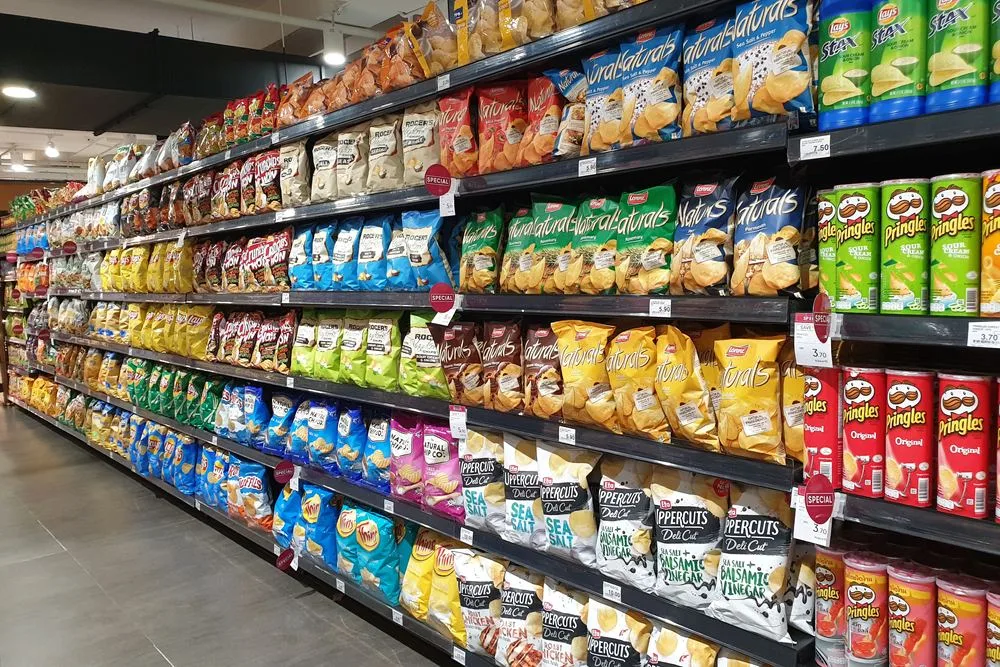For years now, studies have highlighted the health dangers of consuming ultra-processed foods (UPFs). They’ve been linked to an increased risk of chronic diseases, high blood pressure, high cholesterol, and weight gain. Sweetened breakfast cereals, fried foods, fizzy drinks, and processed meats have been shown to be detrimental to our health. However, a new study has now linked them to an increased risk of premature, preventable death, making them more dangerous than we initially thought.
Published in the American Journal of Preventative Medicine by Elsevier, the study focused on the number of deaths within the Brazilian population, and how these deaths were linked to the consumption of ultra-processed foods. To begin the study, researchers began by looking at national food consumption between 2017-2018. They then compared this to data relating to demographics and mortality from 2019. They looked at 541 160 people between the ages of 30 and 69.
What did the study report?
Looking at the average Brazilian’s diet, we see that ultra-processed food consumption accounts for 13-21% of the total calorie intake. Through their analysis of the data, they gathered that the consumption of ultra-processed foods was the cause of over 10% of all premature, preventable deaths in this age demographic.
Along with this, they further noted that ultra-processed foods were also responsible for 21.8% of all preventable deaths from non-communicable diseases, including hypertension, colorectal cancer in men, diabetes, and dyslipidemia. This equates to about 57 000 deaths per year related to the consumption of ultra-processed foods.
What makes ultra-processed food so dangerous?
Ultra-processed foods are defined as “industrial formulations of substances derived from foods that contain little or no whole food.”
The key ingredients in ultra-processed foods are sugar, salt, and fat. They are typically used for flavor, extending shelf life, or giving the food structure. An example of this is salt in bread or sugar in cakes.

meigav/shutterstock
10% of the population is sensitive to the high sodium content contained in these foods. As such, their consumption leads to an increase in blood pressure. These foods also contain refined carbohydrates, which can trigger harmful blood sugar and triglyceride spikes. This leads to an increase in the risk of cardiovascular disease, the leading cause of death in the United States, and type 2 diabetes.
How much ultra-processed food are we consuming?
A recent study published in the American Journal of Clinical Nutrition showed that the average consumption of ultra-processed foods was recorded as 57% of one’s daily calorie intake. Along with this, whole foods (such as fruits, vegetables, whole grains, etc.) had decreased to 27.4% of one’s daily calorie intake.
This means that ultra-processed foods are now the primary source of calories being consumed in the US, contributing almost 90% of the energy we get from added sugars. With these numbers being way higher than the ones seen in the study on Brazil, the impact of these foods on our health is definitely way higher.
Does this mean one should completely cut out ultra-processed food?
Emily Feivor is a registered dietician. According to her, ultra-processed foods are made up of additives and substances from foods that have been heavily processed. These lack protein, fiber, and essential micronutrients, instead containing many calories, saturated fats, and sugar. However, there are a few of these foods which aren’t necessarily detrimental to our health.
“These can all be a part of a balanced diet and are, at times, inevitable to consume,” she says, citing bread, pasta, flour, and cheese as foods that haven’t been altered to the point that is harmful to us and helps us build nutritious meals. But soft drinks, crisps, french fries, and your comfort chocolate ice cream definitely don’t fall into this category. As such, they shouldn’t be a regular occurrence in your diet.
For more clarity on this, utilize the classification system NOVA, developed by an international panel of food scientists and researchers to help us know which foods can still be consumed in moderation, and which ones we’re advised to cut out.
How can I cut back on ultra-processed foods?
- Food Prep: After an exhausting day, the last thing you want to do is stand on the stove and whip up a meal, which leads to you either ordering food or opting for convenient, highly processed foods. Meal prepping ensures that you have a healthy meal every day without the admin of having to cook every day.
- Stock up on healthy snacks: It can be very tempting to reach for that chocolate bar, or packet of crisps when you’re having a busy day and need that “quick fix”. So ensure you have healthy, nutritious snacks on hand, whether it be fresh fruit, mixed nuts, or hummus and vegetables. This will keep you from visiting that vending machine and indulging in ultra-processed foods.
- Swap refined grains for whole grains: A simple way to reduce your processed food consumption is to swap them for healthy whole foods. You can do this by switching out your white rice, bread, and pasta for whole-grain alternatives. These can include brown rice, brown bread, and whole-grain pasta. Whole grain foods are not only more nutritious and rich in fiber, but have also been shown to help protect against conditions such as diabetes and heart disease.
The deafening call to cut back on UPFs
This study adds to a growing list of reasons why we should stop consuming ultra-processed foods. The foods we eat have a massive impact on our health. So, if we don’t fill our body with the nutrients it requires, the consequences could be fatal. The more ultra-processed foods we eat, the poorer the overall nutritional quality of our diet is. This can lead to cardiovascular disease, obesity, and diabetes, which could all lead to premature death.
We often opt for these foods due to their convenience. However, with proper planning, we can have the same convenience from healthier options. These options come with long-term benefits, therefore influencing your longevity.
MAIN IMAGE CREDIT: TY Lim/Shutterstock
References
- Nilson, E.A., Ferrari, G., Louzada, M.L.C., Levy, R.B., Monteiro, C.A. and Rezende, L.F., 2022. Premature Deaths Attributable to the Consumption of Ultraprocessed Foods in Brazil. American Journal of Preventive Medicine.
- Monteiro, C.A., Cannon, G., Levy, R.B., Moubarac, J.C., Louzada, M.L., Rauber, F., Khandpur, N., Cediel, G., Neri, D., Martinez-Steele, E. and Baraldi, L.G., 2019. Ultra-processed foods: what they are and how to identify them. Public health nutrition, 22(5), pp.936-941.
- Elizabeth, L., Machado, P., Zinöcker, M., Baker, P. and Lawrence, M., 2020. Ultra-processed foods and health outcomes: a narrative review. Nutrients, 12(7), p.1955.





![women [longevity live]](https://longevitylive.com/wp-content/uploads/2020/01/photo-of-women-walking-down-the-street-1116984-100x100.jpg)









